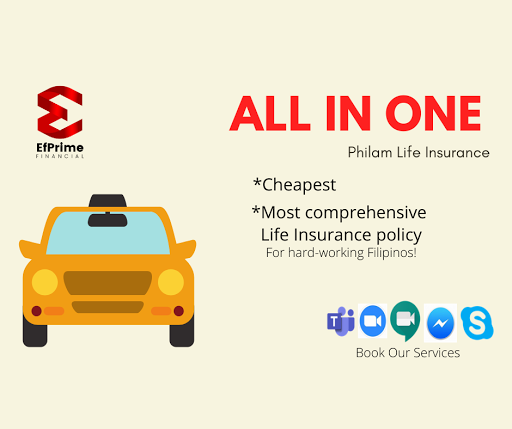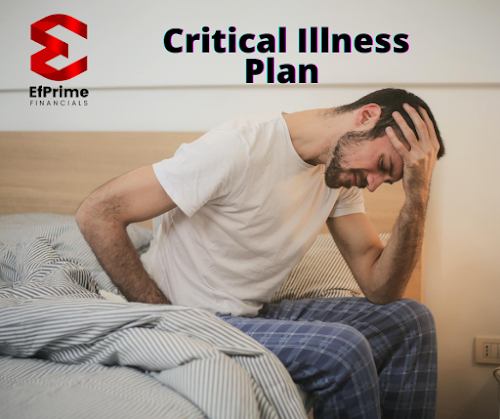Should I Buy Term Insurance? | EfPrime Finance
Should I Buy Term Insurance? | EfPrime Finance
We all know that insurance is usually a good idea, but what kind should you get? Term Insurance is a policy that pays out your beneficiaries (usually your family) if you die while the policy is still in effect. It does not pay out if you become disabled, and it only pays out for the duration of time specified in the terms of your plan. So should you get Term Insurance? You'll want to compare it with other types of policies to make sure it's right for your situation.
In this
post we'll go over some things to consider before making any decisions about
which type of insurance will work best for your life situation and budget.
Types
of Life insurances in the Philippines
- Term Life insurance
A term policy is one that pays the face amount only in the event of death within a stated number of years. Term insurance is designed for use in situations where a person needs maximum protection at the lowest premium outlay, particularly where the need is temporary. Term can properly be used to cover permanent needs, but only if the insured understands that is to be done on a temporary basis. Related: Cheapest Term Insurance of Philam Life Insurance
- VUL Life Insurance
A type of life insurance wherein the cash value built up can be invested in a wide variety of separate accounts, the choice of which to use is entirely up to the contract owner.
Variable universal life is a type of permanent life insurance, because the death benefit will be paid if the insured dies any time as long as there is sufficient cash value to pay the costs of insurance in the policy. Related: Best VUL life insurance of Philam Life
- . Whole Life Insurance
In contrast with term insurance, whole life will pay the face value whenever death occurs. It gives the most permanent coverage over the insured’s entire lifetime for the least amount of premium.
Kinds of Whole Life Insurance from the
standpoint of premium payment characteristics, there are two kinds of whole
life:
(1) Ordinary or straight life- Premiums are
payable for life. Related: Family Secure (VUL)
(2) Limited payment life - Premiums payable
for a specified number of years only. Related: Family Provider (VUL)
How much money do your family members need?
Term Insurance kicks in when you die. It's a good plan for replacing your income for whatever length of time you specify. If you're the sole breadwinner of your family, this is an important consideration. However, if death isn't likely to be an issue for you at all - say because you are very old or have no dependents - then there's little reason to enroll in a term policy. On the other hand, if death is likely to be an issue - perhaps because you're young and have a long life ahead of you and/or you're financially dependent on others, then term insurance may be right for your needs.
Moreover,
in term insurance, what you pay for is already considered an expense the
benefit of which will only be realized upon the death of the insured. In
contracts, a VUL Life insurance, you are both investing at the same time you
are paying for your insurance, hence double purpose.
How much can you afford?
Term
insurance is less expensive than other types of insurance. That's because it
doesn't protect you from the financial losses that come with disability and
illness, and it doesn't pay out if your death is caused by suicide. That said,
if you have dependents who would be devastated if you died and that risk is a
high one for you, then term insurance could be the best option even if it is
more expensive.
Do you want to invest money instead of paying monthly premiums?
If so,
then term insurance may not be for you. Term Insurance premiums are paid every
month for the entire length of time that the policy is active. If you set up a
Plan with a high term insurance premium and then invest the money, you'll never
pay into the plan. You could also choose to invest the money that you would
have paid in premiums after your coverage ends, but that would depend on how
long you expect to live - in which case investing may not make sense at all.
If you'd like to learn more about Term Insurance, here's
a good place to start:
And if you have specific questions about a policy or need
help making decisions, get my services to get the best advice available.
Book my services as Financial Advisor.
If you think that the contents of this article helped you in any way. I would appreciate it if you can comment and share my blog with your social media pages, especially with your friends, family, and colleagues. Thank you.
You can reach me out on the following social media:
Linked-in: Efraim Osingat, CPA, MBA, RFP
FB Page: Financial Literacy Evolution
FB Group: Philam Life Insurance, Local/Global Stock Market and Mutual Funds
Website: beacons.ai/efprimefinance
Youtube: EfPrime Finance
All Rights Reserved.
Disclaimer
The Author is advising readers to consult with your respective Financial Advisors before venturing in any investments. Investing your money is dependent to your goals and your risk tolerance. You should know the risks and rewards of investing before you actually do the same. The illustrations above are for educational purposes only and any risks or losses that you may incur are imputable to your respective decisions.
The author does not in any way provide a guaranty as to the effectiveness and quality of the products and services that are featured in this blog. The products and services were advertised based on personal experience and product and service reviews that the product/service received.
Want to receive more?
Subscribe to my newsletter and I’ll send you the things that we’ll both love. Just put your information and you’ll be all set. And as always, feel free to unsubscribe or adjust the frequency of mailings.
Subscribe to our Newsletter: Sign up Here













Comments
Post a Comment